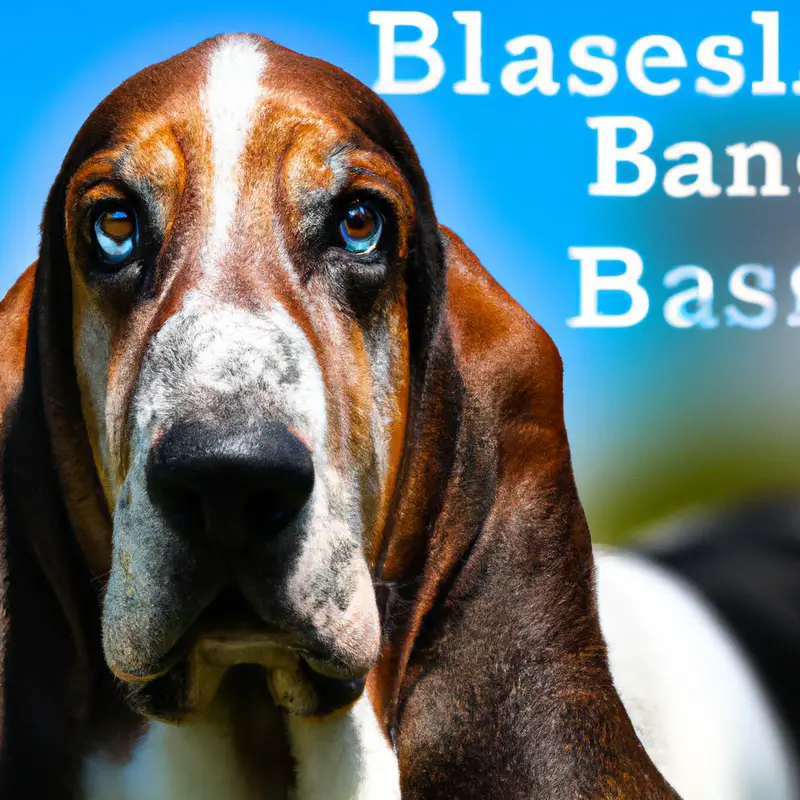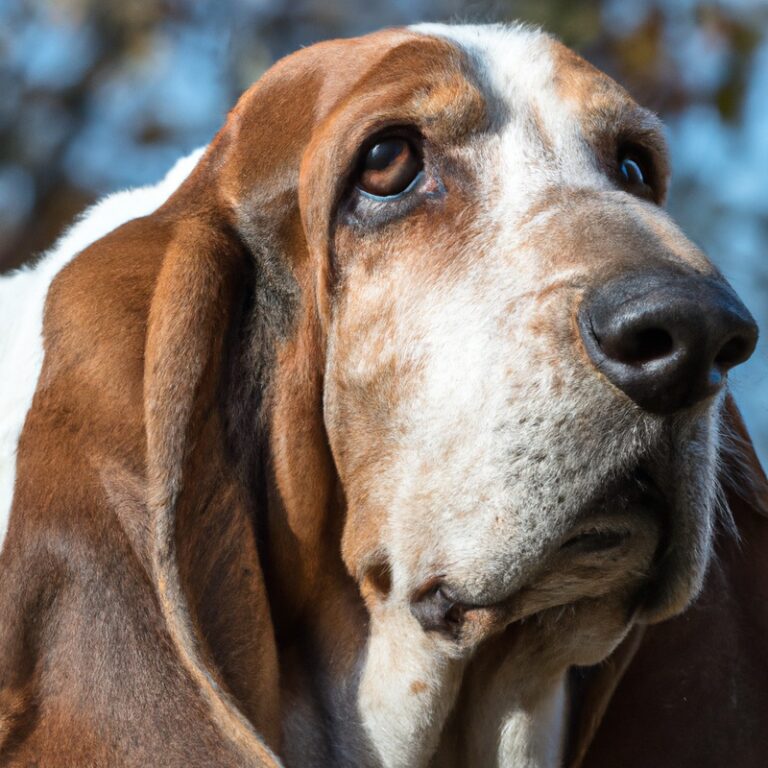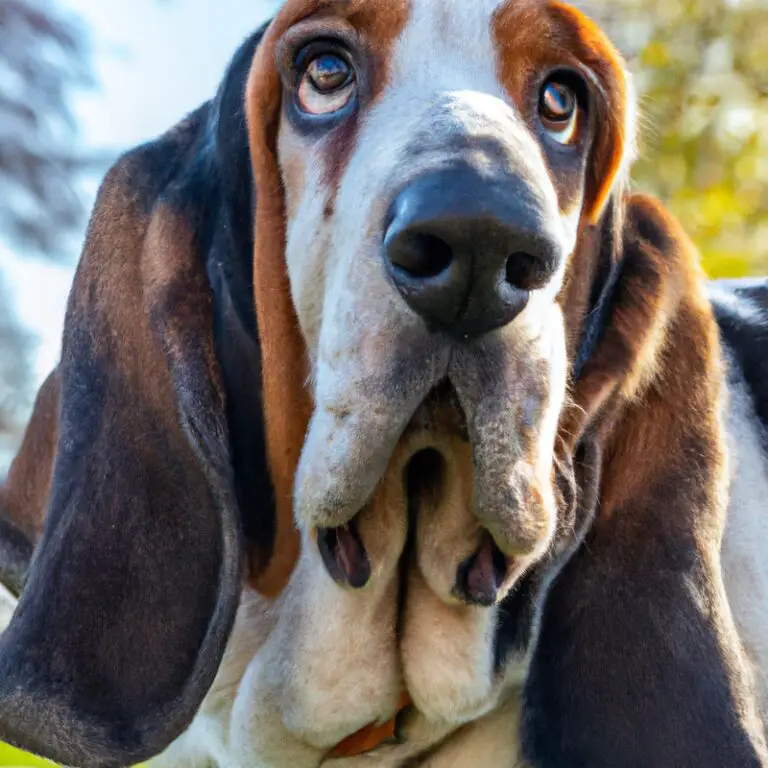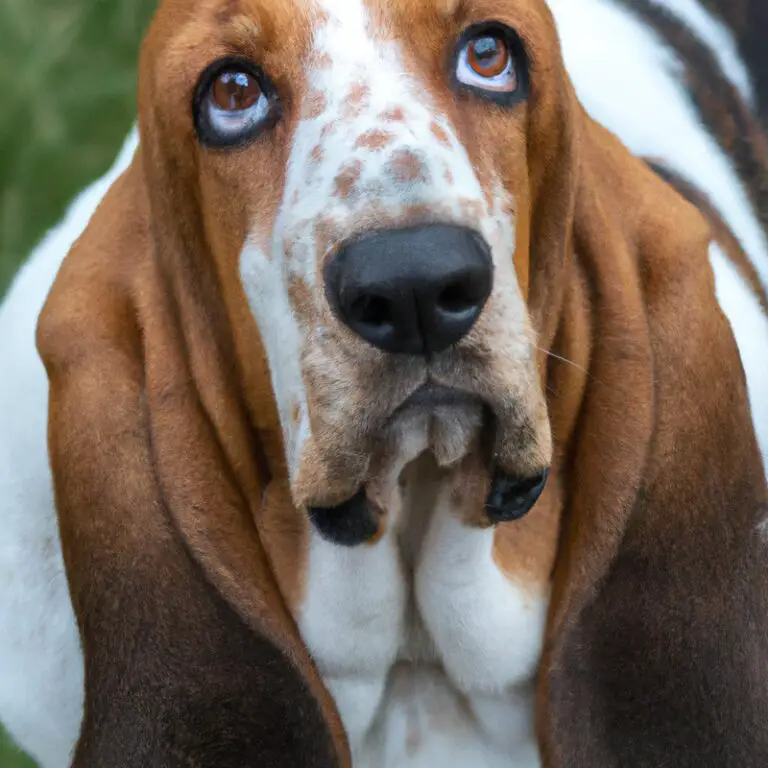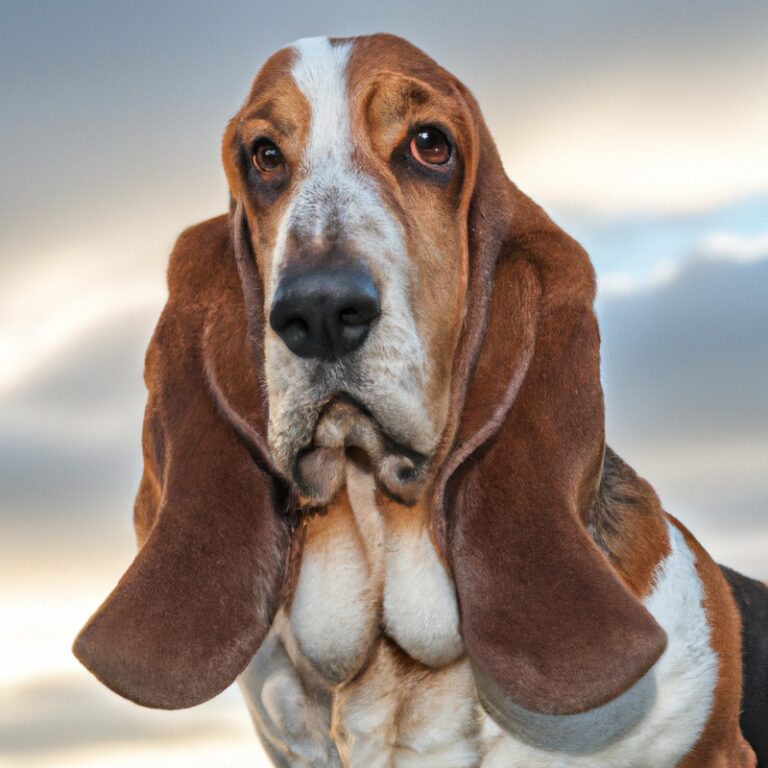Do Basset Hounds Have a Strong Instinct To Protect Their Territory From Human Intruders?
Key Takeaways:
- Basset Hounds generally have a low instinct to protect their territory from human intruders.
- They are more likely to be friendly and curious towards strangers than to display territorial behavior.
- Basset Hounds are known for their relaxed and sociable nature, making them less inclined to guard their territory aggressively.
- While individual temperament may vary, the breed’s protective instincts are typically not pronounced compared to other guard dog breeds.
Are you considering bringing a Basset Hound into your home, but unsure about their protective instincts?
Well, you’ve come to the right place! As an expert in canine behavior, I’m here to shed some light on whether Basset Hounds have a strong instinct to protect their territory from human intruders.
In this blog article, we’ll delve into the understanding of this unique breed, explore their general instincts and behaviors, and discuss factors that can affect their protective instincts.
So, let’s get started and unravel the mysteries of these lovable, floppy-eared companions!
| Question | Answer |
| Topic | Basset Hounds and their instinct to protect their territory from human intruders |
| Do Basset Hounds have a strong instinct to protect their territory from human intruders? | Not typically. Basset Hounds are known for their friendly and laid-back nature. They are generally non-aggressive and are more likely to greet strangers with a wagging tail rather than protect their territory. |
Understanding the Basset Hound Breed
Physical Characteristics of Basset Hounds
Basset Hounds are medium-sized dogs with distinct physical characteristics.
They have a long body and short legs, making their appearance low and close to the ground.
Their loose skin forms wrinkles around the face and neck.
Basset Hounds have long ears that hang down and a tail that is carried high.
These dogs also have a skin flap called a dewlap, which contributes to their unique appearance.
Their coat is short and dense, and comes in various colors, such as tri-color (black, tan, and white) or red and white.
Basset Hounds are known for their big droopy eyes, which give them an adorable and expressive look.
History and Background of Basset Hounds
Basset Hounds have a fascinating history and background. They were originally bred in France to hunt rabbits and other small game.
They have a well-developed sense of smell and are known for their incredible tracking abilities.
Basset Hounds have a distinctive appearance, with their long ears and short legs. They were recognized as a breed by the American Kennel Club in 1885 and have since become popular as both hunting companions and family pets.
Their calm and friendly temperament makes them great companions for people of all ages.
Temperament and Personality Traits of Basset Hounds
Basset Hounds are known for their laid-back and friendly temperament.
They are generally very patient, loving, and good-natured.
These dogs have a gentle and easygoing personality, making them great companions for families and individuals alike.
Bassets are also known to be quite loyal and affectionate towards their owners.
They enjoy being part of the family and thrive on human companionship.
It’s important to note that each Basset Hound may have its own unique personality traits, but overall, these dogs are known for their sweet and friendly nature.
Basset Hounds’ Instincts and Behaviors
General Instincts of Basset Hounds
Basset Hounds have several general instincts that are characteristic of their breed.
They are known for their exceptional sense of smell, which is one of the strongest among all dog breeds.
Bassets also exhibit a strong hunting instinct, due to their origins as scent hounds.
They have a tendency to follow scents and track down small animals.
Additionally, Basset Hounds are known for their friendly and sociable nature, making them great companions for families and other pets.
Pack Mentality and Loyalty
Basset Hounds have a strong pack mentality and are known for their loyalty.
They value their family and home, and consider them part of their pack.
Bassets are naturally inclined to form strong bonds with their human family members.
They thrive on companionship and enjoy being included in family activities.
Their loyalty is evident in their willingness to protect their loved ones if they sense any potential threat.
This pack mentality and loyalty make them excellent family dogs who are always ready to stand by your side.
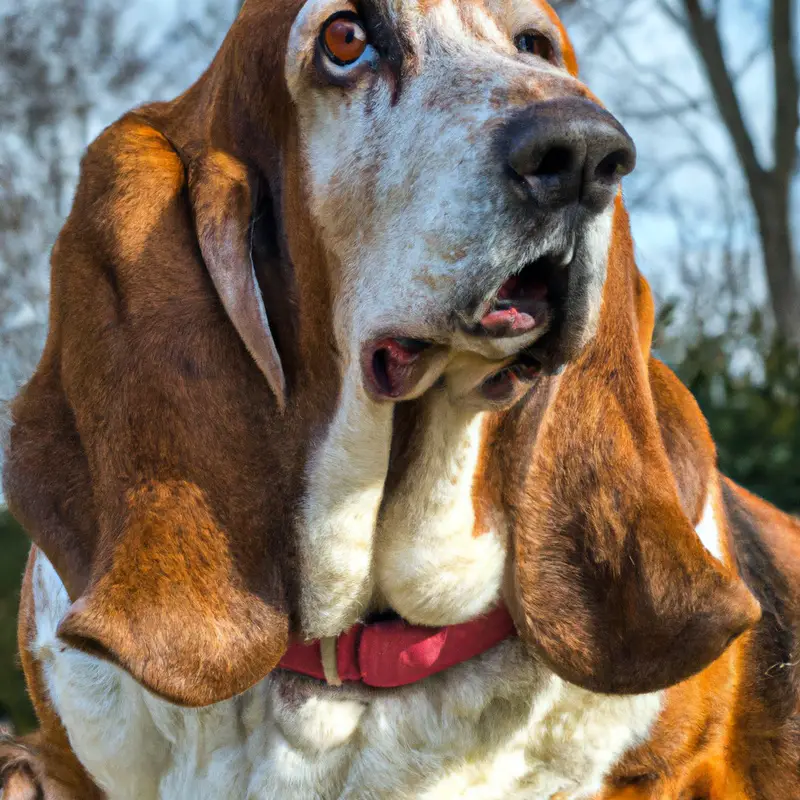
Relationship with Humans
Basset Hounds have a loving and friendly relationship with humans. They are known for their gentle and patient nature, making them great companions.
They enjoy spending time with their owners and thrive on human interaction.
Basset Hounds are loyal and will often form strong bonds with their family members. They are affectionate dogs who enjoy being petted and cuddled.
Basset Hounds are also known to be good with children and make excellent family pets.
Their calm and easygoing demeanor makes them a joy to be around.
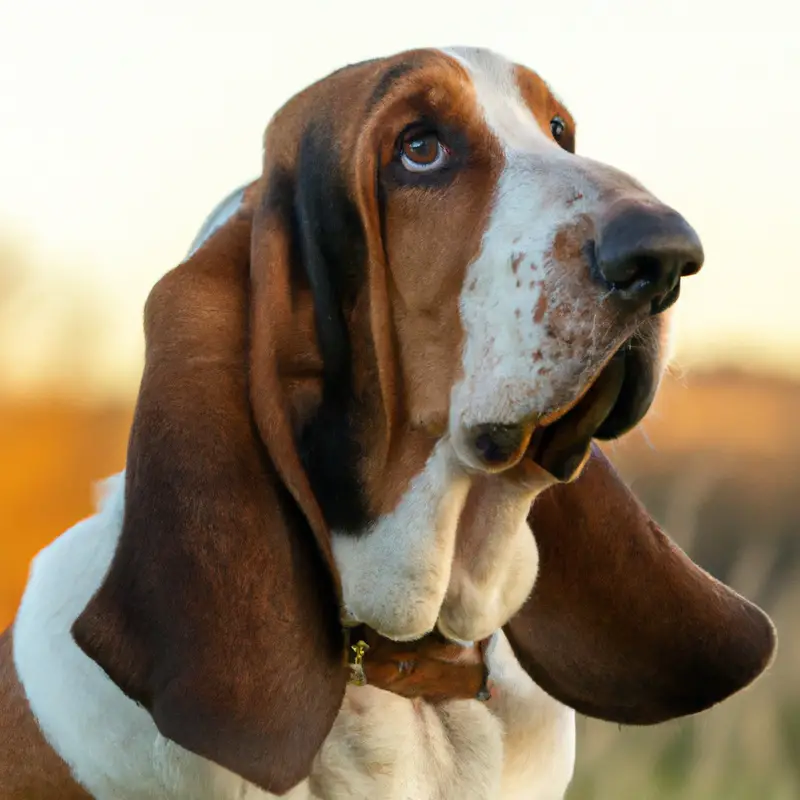
Protective Instincts in Basset Hounds
Basset Hounds and Their Territory
Basset Hounds are known for their strong attachment to their territory.
They consider their home and surrounding area as their own, and they have a natural instinct to protect it.
They are territorial dogs that mark their territory and may become defensive if they perceive any threat to their space.
It’s important to create a secure environment for your Basset Hound and provide appropriate boundaries to prevent any potential territorial issues.
Proper training and socialization can also help them feel more secure and confident in their territory.
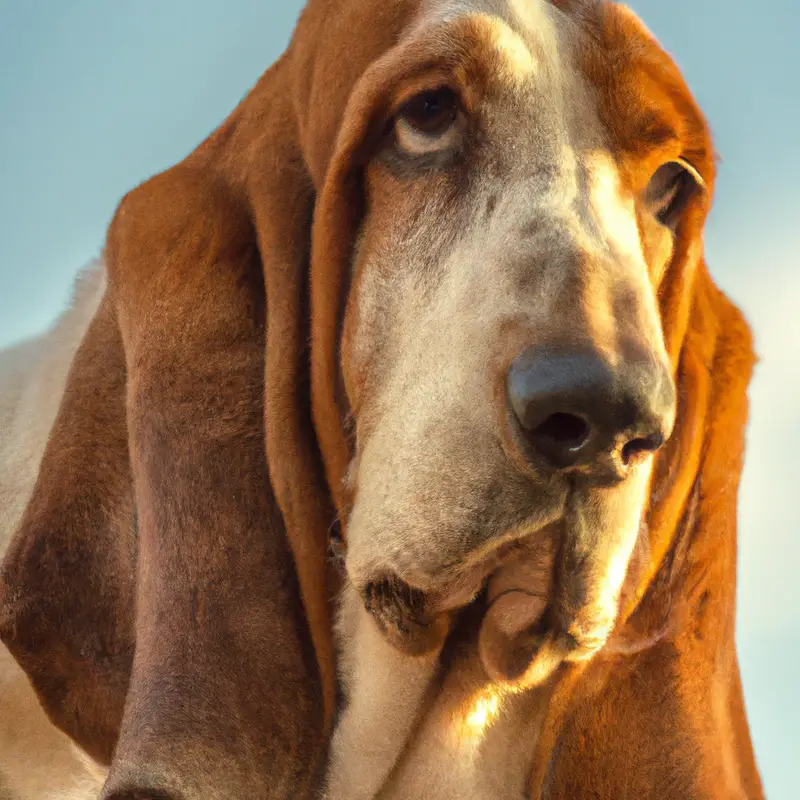
Alertness and Watchful Nature
Basset Hounds are known for their alertness and watchful nature.
They have a keen sense of awareness that helps them detect any changes or potential threats in their environment.
With their droopy ears and soulful eyes, they may seem laid-back, but don’t be fooled.
Basset Hounds are always on the lookout and will let you know if something seems amiss.
Whether it’s a stranger approaching or a strange sound, their alertness and watchful nature make them excellent watchdogs.
So, rest assured that your Basset Hound will have your back and keep a vigilant eye on your surroundings.
Barking and Guarding Behaviors
Basset Hounds are known for their deep, melodic bark which they use to communicate and alert their owners.
They have a moderate guarding instinct and will bark to alert their family of potential intruders.
However, they are generally friendly and not aggressive towards humans.
While they may not be the best guard dogs, their barking can act as a deterrent.
Proper socialization and training can help manage their barking and guarding behaviors.
Regular exercise and mental stimulation can also help keep them content and less prone to excessive barking.
Factors Affecting Protective Instincts
Socialization and Training
Socialization and training are essential for Basset Hounds to develop their protective instincts in a balanced way. By exposing them to various people, animals, and environments, you can help them become confident and well-rounded dogs.
Positive reinforcement training techniques are effective in teaching them appropriate behaviors and responses.
Consistency, patience, and clear communication are key. Regular socialization outings and ongoing training sessions will ensure that your Basset Hound is well-prepared to interact with humans and handle different situations.
Genetics and Breed Characteristics
Genetics play a significant role in shaping a Basset Hound’s characteristics, including their instincts.
Basset Hounds were originally bred for hunting purposes, which has influenced their protective instincts.
Their breed characteristics, such as their deep, booming bark and strong sense of smell, make them naturally alert and watchful.
Additionally, their loyalty and pack mentality make them inclined to protect their territory.
While individual dogs may vary, these genetic factors contribute to the Basset Hound’s instinct to protect their home from human intruders.
Individual Personality Differences
Individual personality differences play a significant role in a Basset Hound’s protective instincts. Just like humans, each dog has its own unique personality traits that can influence their behavior.
Some Basset Hounds may naturally display a strong instinct to protect their territory and loved ones, while others may be more laid-back and less inclined to show protective behaviors.
Factors such as genetics, early socialization, and training experiences can also contribute to these individual differences. It’s important to understand and respect your Basset Hound’s unique personality in order to effectively manage their protective instincts.
Managing a Basset Hound’s Protective Instincts
Providing a Secure Environment
To provide a secure environment for your Basset Hound, there are a few important steps you can take. Firstly, make sure your home is secure by checking for any potential escape routes and ensuring fences and gates are in good condition.
Secondly, eliminate any hazards or toxic substances that could harm your dog.
Thirdly, consider crate training or providing a safe, designated area where your Basset Hound can retreat to when feeling anxious or overwhelmed. Lastly, provide plenty of mental and physical stimulation to keep your dog happy and prevent boredom-induced behaviors.
Remember, a secure environment is crucial for your Basset Hound’s well-being and peace of mind.
Proper Socialization and Training Techniques
Proper socialization and training are essential when it comes to managing a Basset Hound’s protective instincts. The key is to expose your dog to different people, animals, and environments from a young age.
This helps them develop confidence and learn appropriate behavior.
Positive reinforcement training techniques, such as rewards and praise, work best with Basset Hounds. Consistency, patience, and clear communication are also crucial.
It’s important to set boundaries and establish yourself as the pack leader, while still showing your dog love and affection.
Seeking the help of a professional trainer can further aid in managing your Basset Hound’s protective instincts.
Seeking Professional Help if Needed
If you find that you’re struggling to manage your Basset Hound’s protective instincts on your own, don’t hesitate to seek professional help. There are experienced dog trainers and behaviorists who specialize in working with breeds like Basset Hounds.
They can provide you with expert guidance and techniques to address your dog’s protective behaviors effectively.
A professional can assess the situation, tailor a training plan to your specific needs, and help you navigate any challenges you may encounter along the way. Remember, seeking professional help is a proactive step towards creating a safe and harmonious environment for both you and your Basset Hound.
Final Verdict
Basset Hounds do have a strong instinct to protect their territory from human intruders. Their pack mentality and loyalty make them naturally inclined to guard their home and family.
While their protective instincts may vary from dog to dog, it is important to understand that socialization, training, and genetics play a significant role in shaping these behaviors.
By providing a secure environment, proper socialization, and training techniques, and seeking professional help if needed, Basset Hound owners can effectively manage and channel their protective instincts. Overall, Basset Hounds can be reliable and vigilant guardians of their territory.

